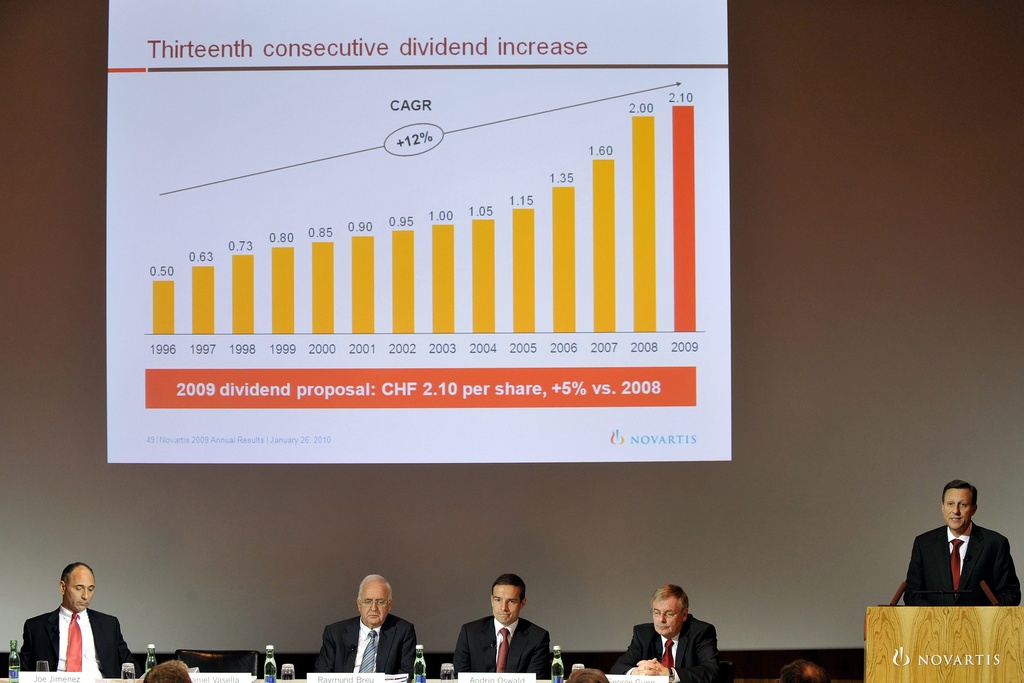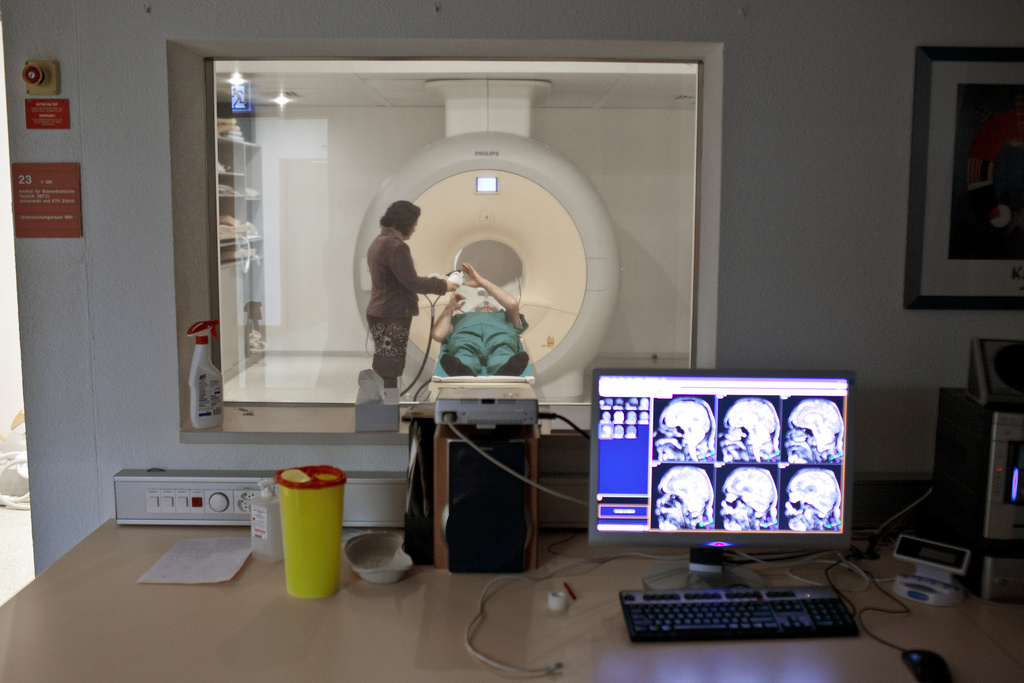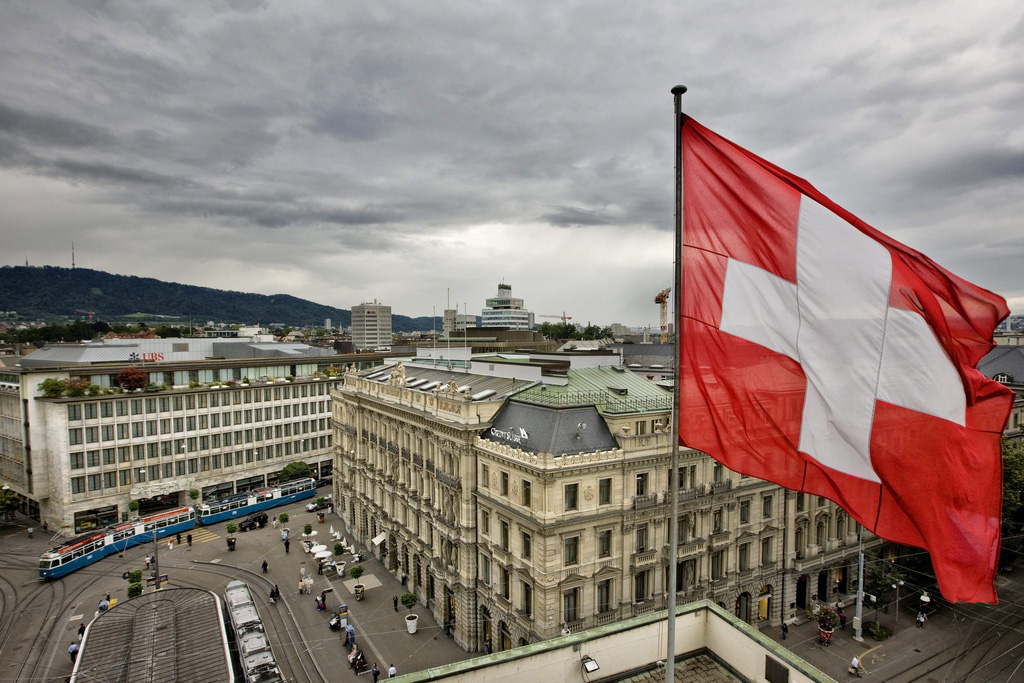IMD tells Switzerland to keep on competing

A leading Swiss business school says although Switzerland remains in fourth place in its annual competitiveness report, the country should not sit back.
The IMD in Lausanne ranks Switzerland behind Singapore, Hong Kong and the United States in its 2010 world study of 58 nations.
While praising the basic solid fundamentals of the Swiss economy, the IMD says business executives believe the country’s “image abroad has been tarnished and the risk factor in the financial system was magnified”.
“When we are speaking about the image we are speaking about the future,” Professor Stéphane Garelli, director of the IMD’s World Competitiveness Center,” told swissinfo.
“We are a little bit concerned by the fact that we haven’t suffered yet from the deterioration of the image of Switzerland.”
“The fact that Switzerland is more isolated on not only the political but also the economic scenes around the world may have a price in the future.”
He was referring to a highly publicised and damaging tax case in the United States against Swiss bank UBS, as well as attacks against the country’s banking secrecy legislation, notably from the Organisation for Economic Co-operation and Development.
“More sensitive”
“I think Switzerland has to be a little bit more sensitive to what others are thinking. Most probably there is a change in attitude in being more proactive… we have had the tendency a little bit to sit back and wait for things to happen or not.
“We need a bit more powerful political and economic diplomacy in this respect.”
The IMD notes from its rankings the creation of a new economic force that includes the South, emerging markets and some parts of Africa.
Garelli feels the challenge for Switzerland will be to become a part of this “success story”, not only concentrating on the [markets in the] United States and Europe, but also on the rest of the world that is quickly developing.
If he were to look into the crystal ball about where Switzerland might feature in next year’s rankings, Garelli feels it will still be towards the top because of its strong fundamentals.
“The country has no inflation, no unemployment, a very positive current account balance, very strong exports and the list could go on.
“With the exception of a relatively weak GDP – there was a growth decline last year but not too dramatic – I think almost all the indicators regarding Switzerland in terms of economic performance are green.
Swiss franc strength
“The fundamentals are very strong. Now this is being reflected in the strength of the Swiss franc. This is a source of concern of course because it can damage exports from Switzerland very much.
Will pressure from outside the country, for example on the automatic exchange of information on tax matters, play a role in Switzerland’s competitive edge?
As Garelli puts it, no one likes the number one in the class and everyone is looking for money. He feels that banking secrecy will “slowly disappear”.
“The name of the game will be for the banking sector in Switzerland to remain competitive without necessarily relying on a particularity of Swiss law.
“If you look at the other industry sectors, where Switzerland is very competitive like pharmaceuticals, food and watches, we have world leaders which do not benefit from a special Swiss law. They do it for sheer competence and professionalism, and I think the banking industry will do the same.”
Robert Brookes, swissinfo.ch
The organisation has been active in the field of competitiveness of nations
and companies since 1989. It says it gathers the latest and most relevant data on the subject and analyses the policy consequences.
The WCC cooperates with a network of 54 partner institutes worldwide to provide the government, business and academic community with its annual study, online activities, competitiveness reports and workshops.
Despite the economic crisis, Switzerland preserved its economic, social and political fundamentals. It rebounded faster than the majority of the countries included in the IMD World Competitiveness Yearbook, due in part to high economic diversification and a talented labour force that protected it from the long-term negative impacts of the crisis.
The challenges for the future should not be underestimated as its dependence on countries abroad exposes it to uncertainties and tensions of the economic situation.
For example, the Swiss franc strengthened with respect to the euro, penalising the companies exporting from Switzerland. It is now a question of expanding business partners, in particular in the emerging markets (Brazil, India, China, Russia) of world economic growth.
Switzerland’s economy has a unique platform of hosting dynamic small and medium-sized enterprises – creating high added value – which should enable it to maintain a high level of competitiveness.

In compliance with the JTI standards
More: SWI swissinfo.ch certified by the Journalism Trust Initiative



You can find an overview of ongoing debates with our journalists here. Please join us!
If you want to start a conversation about a topic raised in this article or want to report factual errors, email us at english@swissinfo.ch.